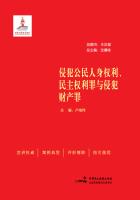[During his American tour of 1882-1883, Salvini played in Boston. One of his auditors, Henry James, the distinguished novelist, in the _Atlantic Monthly_ for March, 1883, gave a detailed criticism of the performances. Of Salvini's Othello he said:
... "What an immense impression--simply as an impression--the actor makes on the spectator who sees him for the first time as the turbaned and deep-voiced Moor! He gives us his measure as a man: he acquaints us with that luxury of perfect confidence in the physical resources of the actor which is not the most frequent satisfaction of the modern play-goer. His powerful, active, manly frame, his noble, serious, vividly expressive face, his splendid smile, his Italian eye, his superb, voluminous voice, his carriage, his ease, the assurance he instantly gives that he holds the whole part in his hands and can make of it exactly what he chooses,--all this descends upon the spectator's mind with a richness which immediately converts attention into faith, and expectation into sympathy. He is a magnificent creature, and you are already on his ride. His generous temperament is contagious; you find yourself looking at him, not so much as an actor, but as a hero.... The admirable thing in this nature of Salvini's is that his intelligence is equal to his material powers, so that if the exhibition is, as it were, personal, it is not simply physical. He has a great imagination: there is a noble intention in all he does.
The pages which now follow, taken from Salvini's Autobiography, are presented with the permission of his publishers, the Century Company, New York.--ED.]
FIRST APPEARANCE
The Bon and Berlaffa Company, in which my father was engaged, alternated in its repertory between the comedies of Goldoni and the tragedies of Alfieri.
One evening the "Donne Curiose" by Goldoni was to be given, but the actor who was to take the harlequin's part, represented in that piece by a stupid slave called Pasquino, fell sick a few hours before the curtain was to rise. The company had been together for a few days only, and it was out of the question to substitute another play. It had been decided to close the theatre for that night, when Berlaffa asked:
"Why couldn't your Tom take the part?" My father said that there was no reason why he shouldn't, but that Tom had never appeared in public, and he didn't know whether he had the courage.
The proposition was made to me, and I accepted on the spot, influenced to no little extent by a desire to please the managers, who in my eyes were people of great importance. Within three hours, with my iron memory, I had easily mastered my little part of Pasquino, and, putting on the costume of the actor who had fallen ill, I found myself a full-fledged if a new performer. I was to speak in the Venetian dialect; that was inconvenient for me rather than difficult, but at Forte, where we were, any slip of pronunciation would hardly be observed.
It was the first time that I was to go on the stage behind the dazzling footlights, the first time that I was to speak in an unaccustomed dialect, dressed up in ridiculous clothes which were not my own; and I confess that I was so much frightened that I was tempted to run back to my dressing-room, to take off my costume, and to have nothing more to do with the play. But my father, who was aware of my submissive disposition toward him, with a few words kept me at my post.
"For shame!" said he; "a man has no right to be afraid." A man! Iwas scarce fourteen, yet I aspired to that title.
The conscript who is for the first time under fire feels a sense of fear. Nevertheless, if he has the pride of his sex, and the dignity of one who appreciates his duty, he stands firm, though it be against big will. So it was with me when I began my part. When I perceived that some of Pasquino's lines were amusing the audience, I took courage, and, like a little bird making its first flight, I arrived at the goal, and was eager to try again. As it turned out, my actor's malady grew worse, so that he was forced to leave the company, and Iwas chosen to take his place.
I must have had considerable aptitude for such comic parts as those of stupid servants, for everywhere that we went I became the public's Benjamin. I made the people laugh, and they asked for nothing better.
All were surprised that, young and inexperienced as I was, I should have so much cleverness of manner and such sureness of delivery. My father was more surprised than anybody, for he had expected far less of my immaturity and total lack of practice. It is certain that from that time I began to feel that I was somebody. I had become useful, or at least I thought I had, and, as a consequence, in my manner and bearing I began to affect the young man more than was fitting in a mere boy. I sought to figure in the conversation of grown people, and many a time I had the pain of seeing my elders smile at my remarks.
It was my great ambition to be allowed to walk alone in the city streets; my father was very loath to grant this boon, but he let me go sometimes, perhaps to get a sample of my conduct. I don't remember ever doing anything at these times which could have displeased him; Iwas particularly careful about it, since I saw him sad, pensive, and afflicted owing to the misfortune which had befallen him, and soon be began to accord me his confidence, which I was most anxious to gain.
A FATHER'S ADVICE















